So you probably saw the headline and thought to yourself, “Oh Dave came up with a cute tie-in to all the pomp and ceremony that went on over in London last week, how clever of him to find an Eclipse title that connects so well with the marriage of Prince William and his girlfriend Catherine Middleton.” Yeah, I’m sure that’s what you were thinking and I can’t fault you for drawing such an obvious conclusion, even though it’s wrong. I actually chose this film for my next installment in this series simply because May 2 happens to be the birthday of Catherine the Great, the most powerful woman on earth during her lifetime and one of the most influential of all monarchs in Russia’s long and turbulent history.
Despite the fact that The Rise of Catherine the Great depicts a young woman’s entry into the monarchy business through a strategically advantageous marriage, with all the splendor and pageantry that typically accompany royal weddings (and the rest of their lives thereafter), the linkage between this film and Friday’s much-hyped nuptials at Westminster Abbey didn’t dawn on me until later that evening, more than a dozen hours after the vows had been spoken. As the light bulb of realization dimly lit up in my mind, I dreaded the implications that some might draw about me as some sort of royals-obsessed bandwagon jumper, when actually I’m fairly apathetic about the whole thing. But I’m past that now. I watched this rather English adaptation of 18th-century Russian history again on Saturday morning with all the Will & Kate hoopla in mind and found that it provides an amusing perspective on the foibles of aristocrats that us commoners can enjoy, provided that we not allow the hammy acting and other limitations of 1930s cinema to detract from the experience.
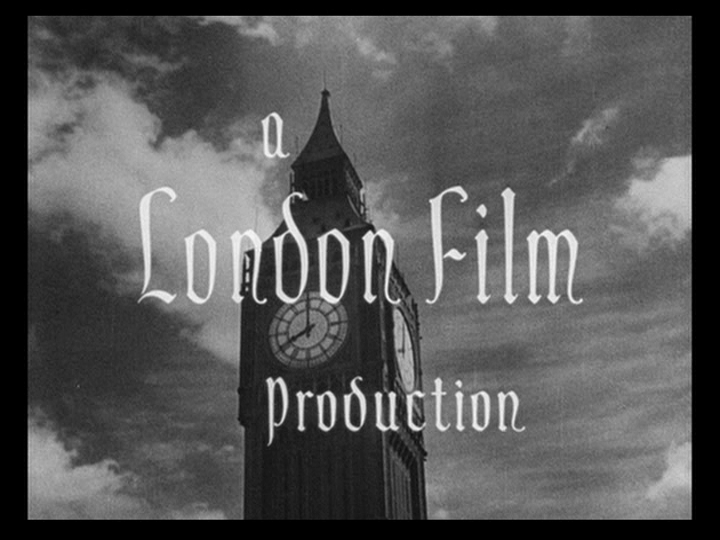
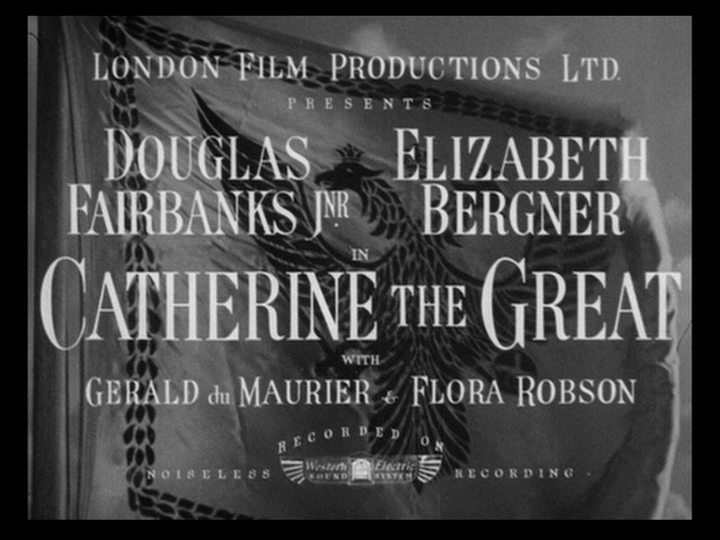
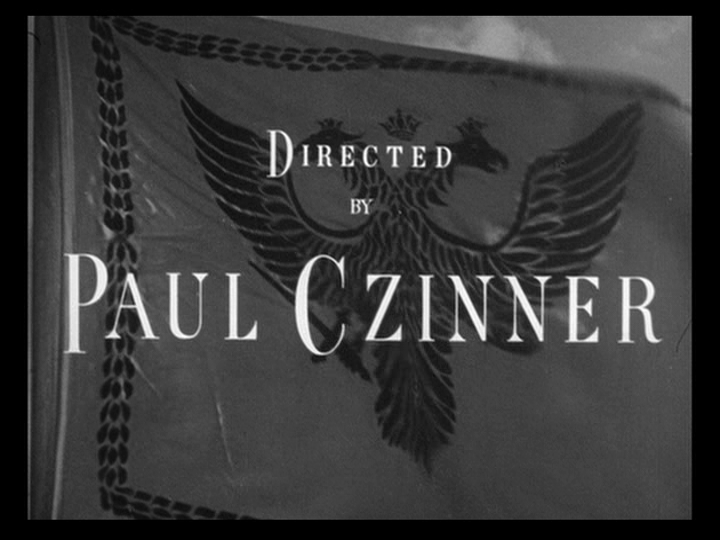
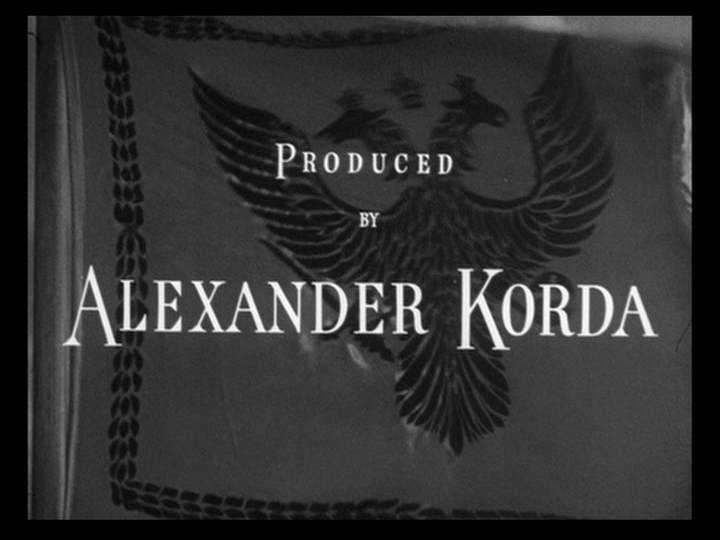
?The film comes from Eclipse Series 16: Alexander Korda’s Private Lives. Though Korda did some directing early in his showbiz career, his lasting fame rests more on his role as a producer, most significantly of the revered London Films, so easily identifiable over the course of several triumphant decades by their opening splash screens featuring Big Ben and his ringing bells. London Films experienced its major breakthrough with Charles Laughton’s scenery (and drumstick) chewing performance in The Private Life of Henry VIII, and this similarly historic biopic followed closely on his kingly heels.

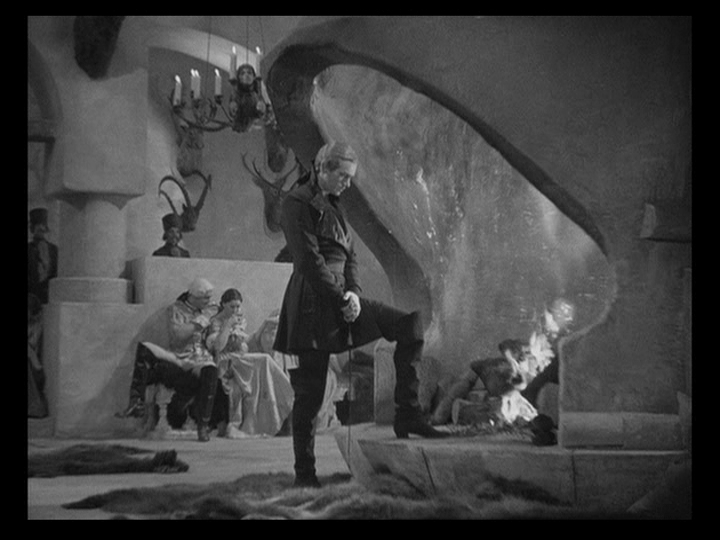
The lead role of Catherine was played by Elisabeth Bergner, wife of director Paul Czinner, who both came to England to escape Nazi oppression in Germany shortly before starting work on this project. (Bergner, by the way, is not pictured in the main image on either the DVD case or Criterion’s webpage dedicated to this film; instead, they use stills featured Flora Robson, who plays the older Empress Elisabeth whom Catherine eventually succeeded. Did anyone from their graphic design department actually watch this movie?) The biggest star however, both then and now, was Douglas Fairbanks Jr., a specimen of Hollywood royalty himself, owing much to his father’s success in the early days of motion pictures and destined for a pretty long and impressive career himself. To date, this is Fairbanks’ only appearance in a Criterion-related film, but who knows, maybe someday they will get the rights to The Prisoner of Zenda or even Gunga Din?
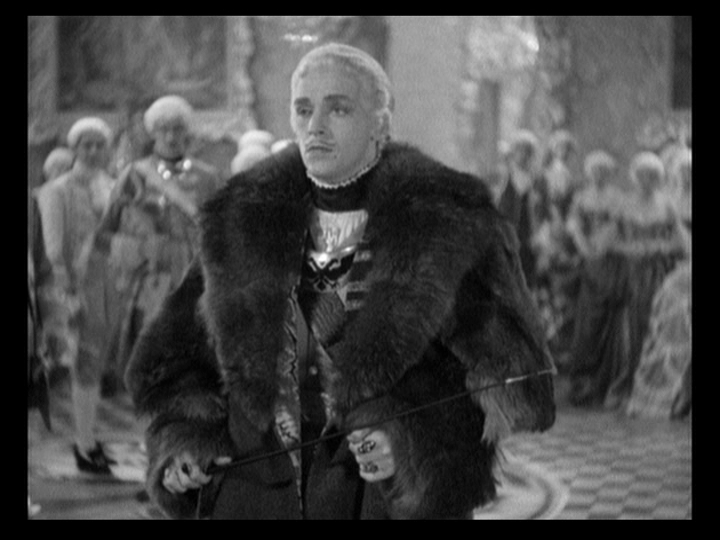
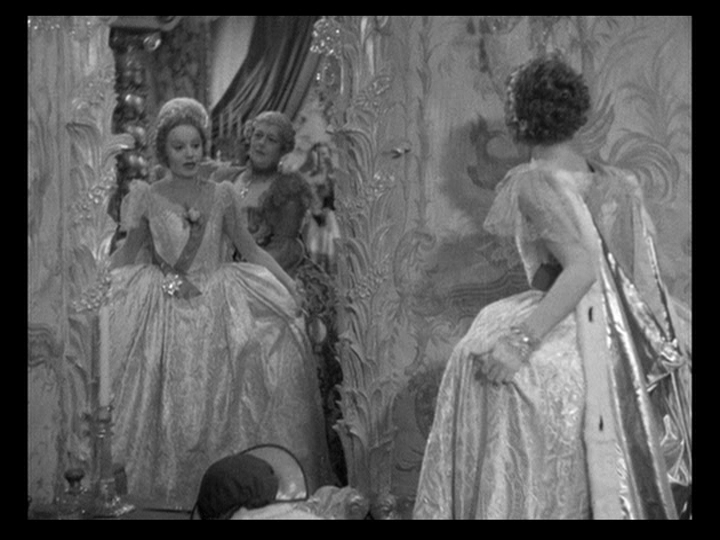
Legends about Catherine the Great, in particular her voracious sexual appetite, have been circulating about her ever since she assumed the throne (perhaps even earlier!), so she’s been an object of popular fascination for more than a few centuries now. Her unique status as a woman possessed of great worldly power and thus free to indulge her desires with impunity gave her a larger than life reputation and led to not one but two substantial cinematic treatments of her story in 1934, with another Criterion title, Josef von Sternberg’s The Scarlet Empress starring Marlene Dietrich providing the competition. By just about all accounts, von Sternberg’s film is the superior one, with a more compelling personality playing the role of Catherine, a more lurid plot and over-the-top set designs, though he’s unable to shake his silent-film roots with an excessive reliance on intertitles to advance the narrative. I reviewed The Scarlet Empress back in the early days of my Criterion Reflections blog; though I won’t comment much further on it here, the two movies provide intriguing similarities and contrasts in how they handle their material.
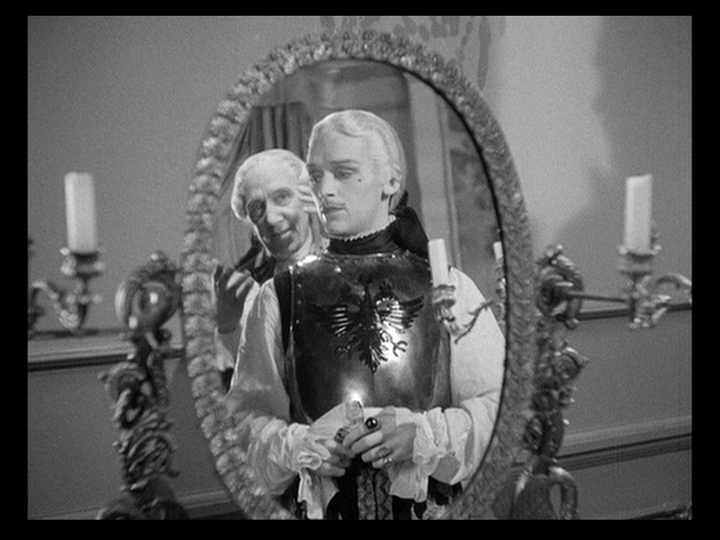
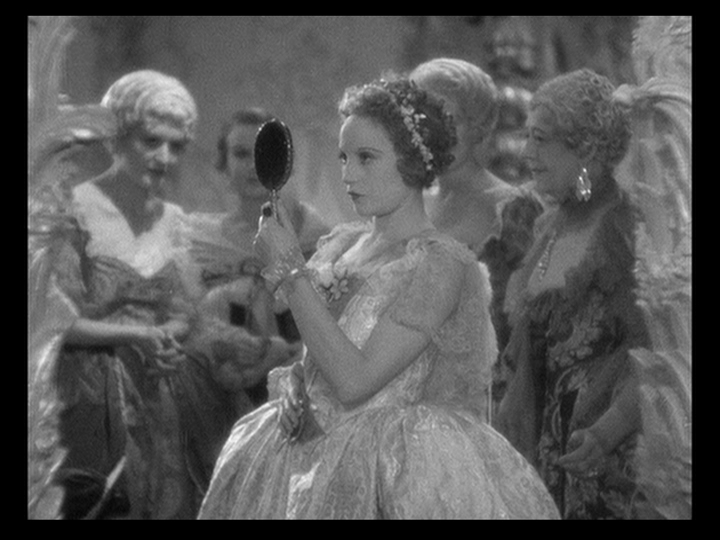
The biggest difference in the two as far as characterizations are concerned is how they each portray Grand Duke Peter, Catherine’s eventual (and thereafter short-lived) husband. In The Scarlet Empress, Peter is mentally defective, practically a gibbering idiot and creepily repulsive to look at. Even though that appears to be based on historical fact, clearly a matinee idol like Fairbanks had no interest in playing such a role (that was back before they started giving out Oscars for going just short of “the full retard.”) Instead, The Rise of Catherine the Great‘s script presents him as a brooding playboy, accustomed to effortlessly seducing whatever pretty woman suits his mood at the moment and fearfully aversive to the inevitable fate of an arranged marriage that his aunt, the Empress, seeks to impose upon him for the purpose of furthering the royal lineage. That’s where Catherine comes in, whisked away from her privileged princess childhood in Germany to provide suitable breeding stock for the heir to the throne. And perhaps to temper the genetic tendency of tooth-baring grimacing that seems to run in the family.
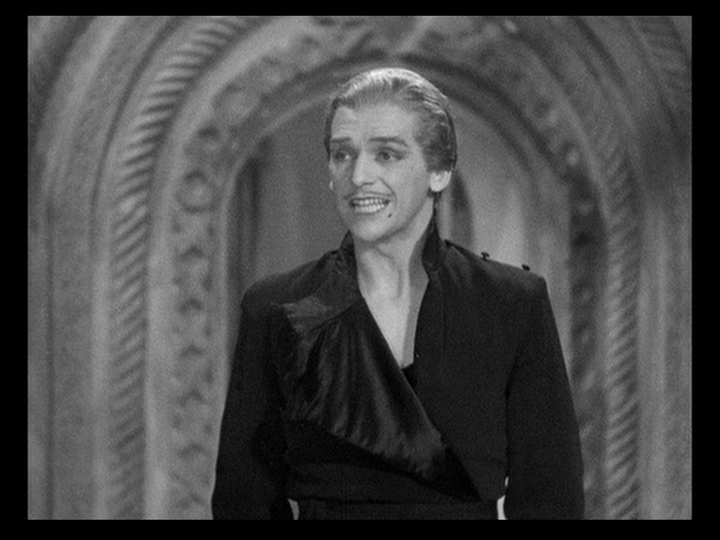
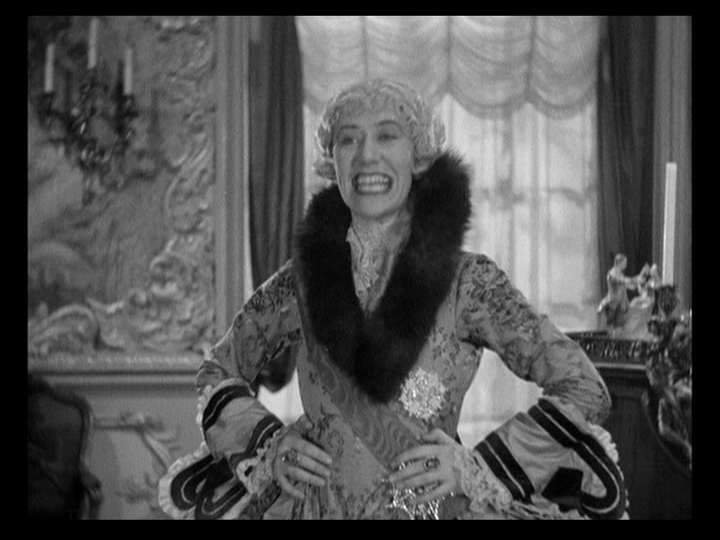
So beneath all of the baroque opulence and relatively tame innuendos regarding both Catherine’s and Peter’s promiscuous escapades, what we basically have in The Rise of Catherine the Great is the story of a reluctant groom and his scheming ambitious bride, who senses his disdain, has little power to win his affections because of the circumstances leading to their marriage but has to make the best of her situation anyway.
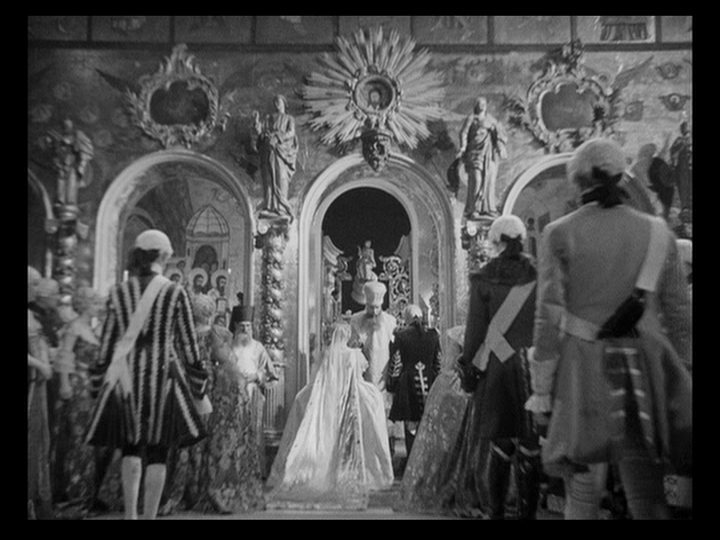
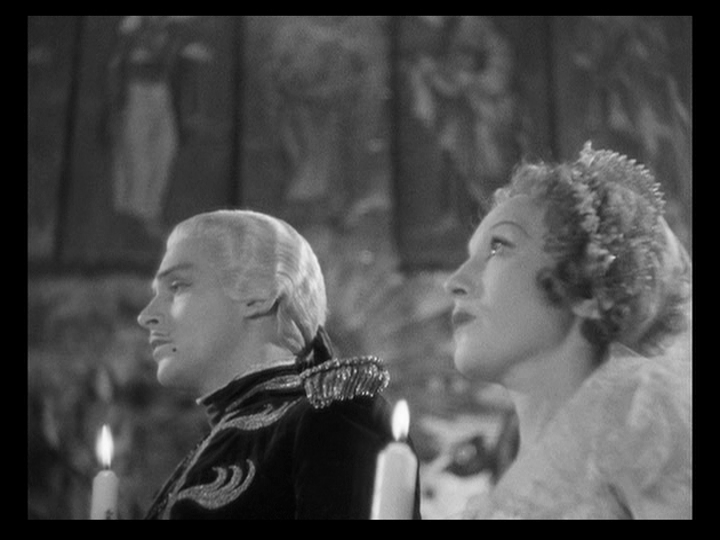
Though the political stakes are high, we seldom find ourselves outside a tightly enclosed labyrinth of palace intrigues, with no real sense of Russia’s expansiveness and a very English-tilting approximation of the Russian imperial culture – everything from the soundtrack music to Peter and Catherine’s wedding ceremony has a “Hail Brittania” vibe to it, which is understandable being that this is a London Film and all, but not of much help to anyone looking for more plausible historical insight.
More successful is Czinner’s effort to make Peter and Catherine intriguing figures whom the audience can relate to on their own level. Peter’s not necessarily a likable guy, in fact, he’s an effete little sniveler when it gets right down to it, throwing the most unbearable tantrums whenever he’s thwarted one time too many. Though not really a villain in the classic sense, he serves as an effective foil for both Catherine and Elisabeth.
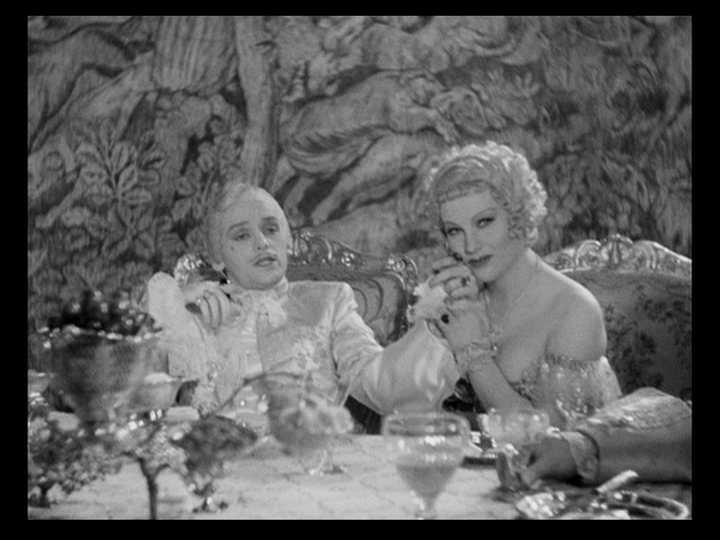
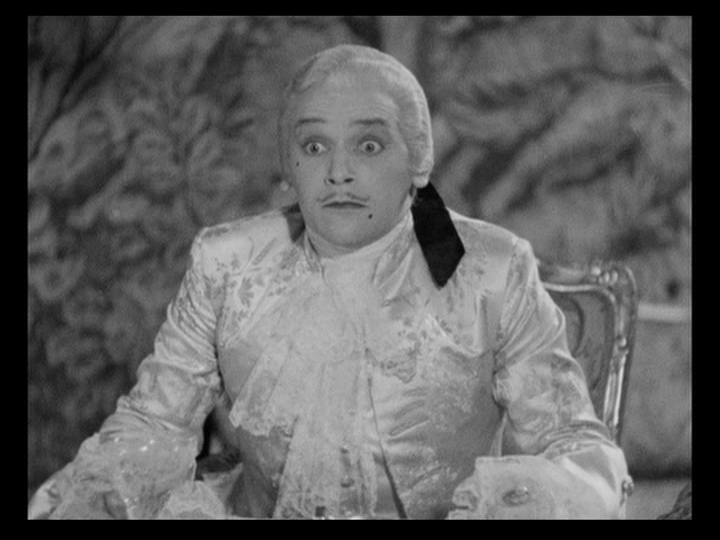
Any guy who dreads or actually finds himself being trapped by fate between a coldly calculating mother-in-law (which is Elisabeth’s de facto role in Peter’s life, since she clearly favors Catherine over him) and a shrewd social climber of a wife who instinctively mistrusts his every move will relate to the poor Grand Duke’s predicament.
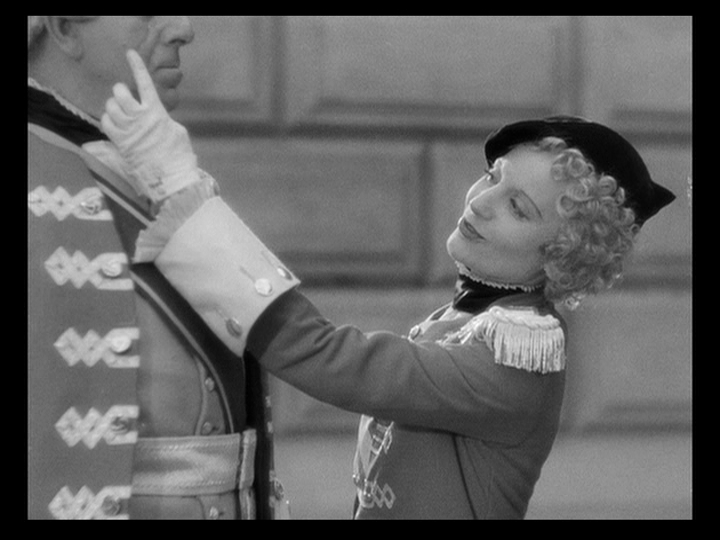
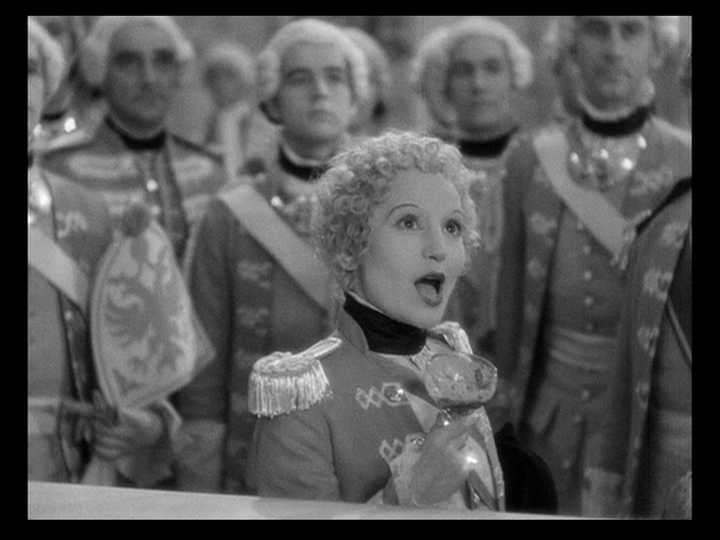
And any woman who recognizes that her romantic relationship has become a mere formality and that she now plays the role of “despised inconvenience” in the eyes of a man she once had affection for will probably find herself cheering Catherine on as she successfully pursues and executes the counter-moves that leave her in charge and on top, despite her initial outsider status.
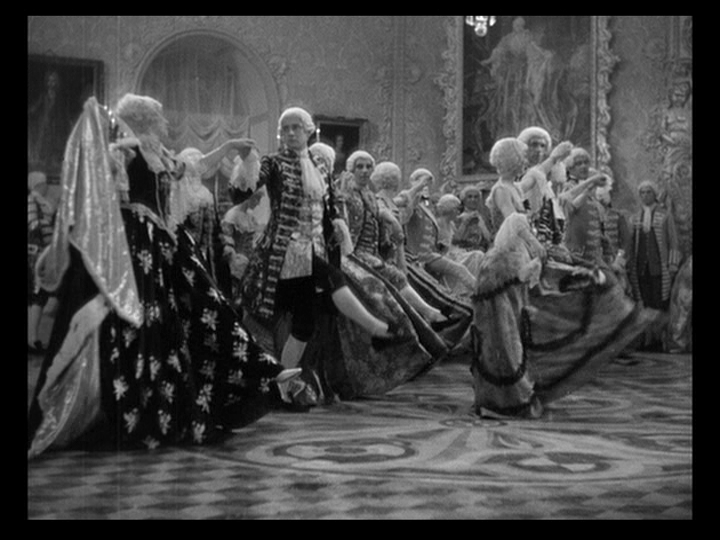
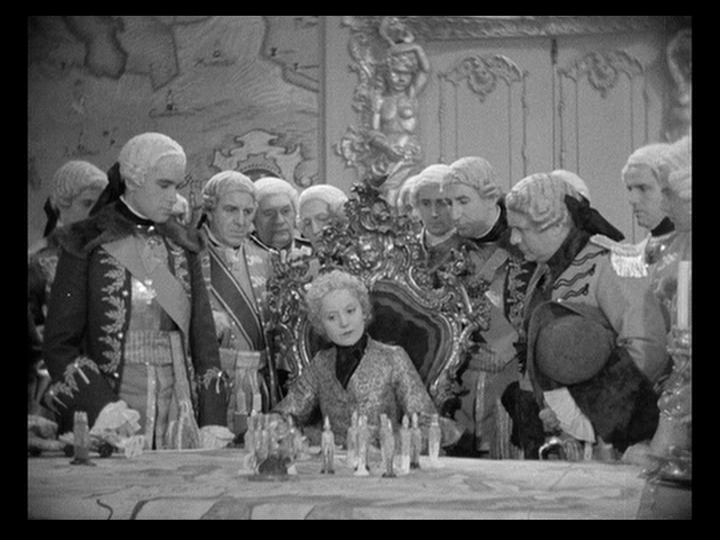
Once the relational dynamics are set up, it’s just a matter of time before Elisabeth’s conniving manipulation and Peter’s foppish vanity and indolence drag them down to their well-deserved ignominious ends and Catherine’s relentless drive to power pays its dividends. Though there are some brief allusions to her own famous tendencies to take on multiple lovers, the overall tone of Catherine the Great (going by its UK title) is pretty sympathetic toward its subject, taking significant steps to alleviate her of any tinge of guilt from the cruder machinations that made her the sole monarch to rule and expand Russia’s borders, painting her instead as a noble humanist, willing to sacrifice her strategic military advantages for the sake of the common foot-soldiers who fight and die on her behalf. (Yeah, right…)
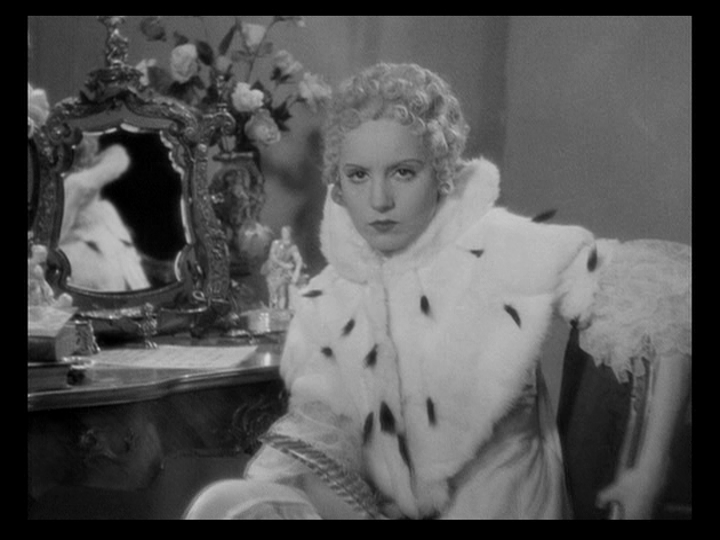
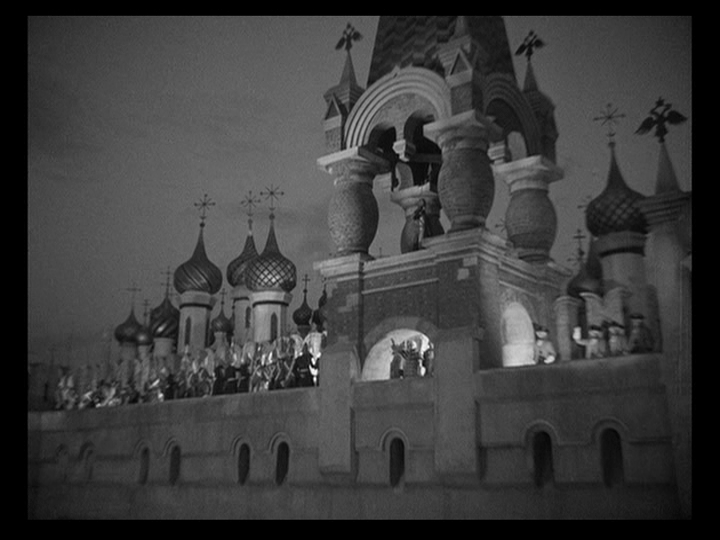
Catherine’s look and characterization here reminded me in an odd way of early 90s-era Madonna, around the time of her Bedtime Stories CD. Your mileage may vary, but I think there’s some similarity to Madonna’s public image at that time and the intrigue that a woman like Catherine must have held for women of the 1930s. Given that two major filmed biographies about Catherine were green-lit for the same year, studios obviously banked on the character’s popularity. Obviously, if her story were to be filmed again today (and perhaps it’s a tale that’s overdue for a fresh cinematic look), the attention to authentic period details and more effort to creating an exotic atmosphere of 18th century St. Petersburg would surpass what Korda, Czinner and company achieved. Still, almost every frame of The Rise of Catherine the Great bursts with rococo extravagance, and the image quality on the DVD (or on Hulu Plus, where its available for your streaming convenience) comes through very nice and clear, especially when considering its age and in comparison (fair or unfair though it may be) to the similarly aged Japanese films of Ozu, Naruse, and Shimizu also featured in the Eclipse line.
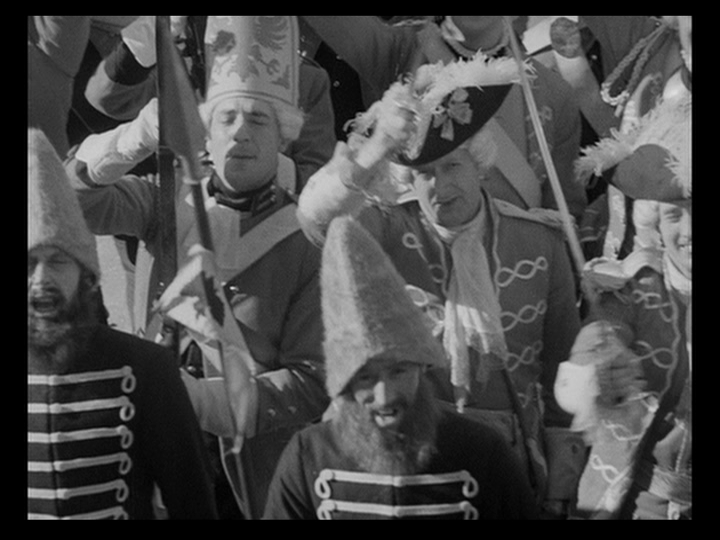
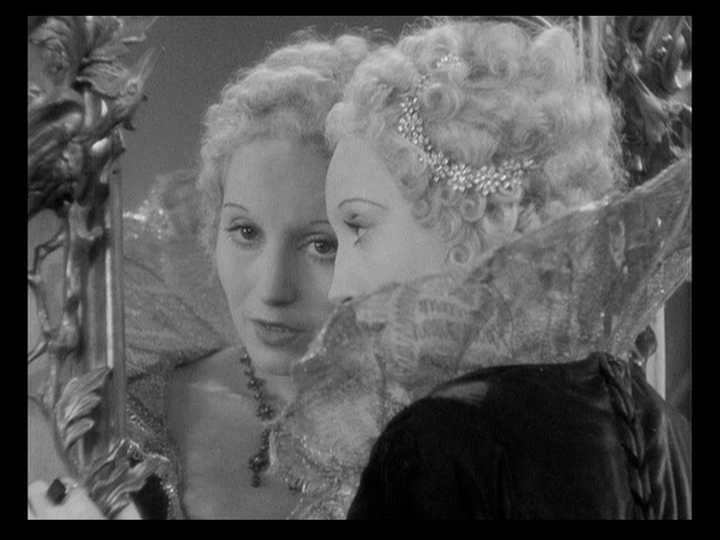
Students of Russian history and those who’ve delved much more deeply than I into the details of Catherine’s life are much more qualified to give an opinion on how accurately this film captures her personality, motivations and real-life dilemmas. As is so often the case, these kind of outsized historical figures serve more effectively as a canvas upon which we project our own desires and conflicts, imagining how we might behave if we had the wealth and resources of a continent and its armies at our disposal. As infamous and supposedly insatiable as Catherine may have been, Elizabeth Bergner and her husband Paul Czinner portray her simply as a woman who wanted to feel loved. The lengths some people will go to, just to have that simple need met, will provide the fuel for many a fine (or mediocre, as the case may be) film for as long as the medium exists.


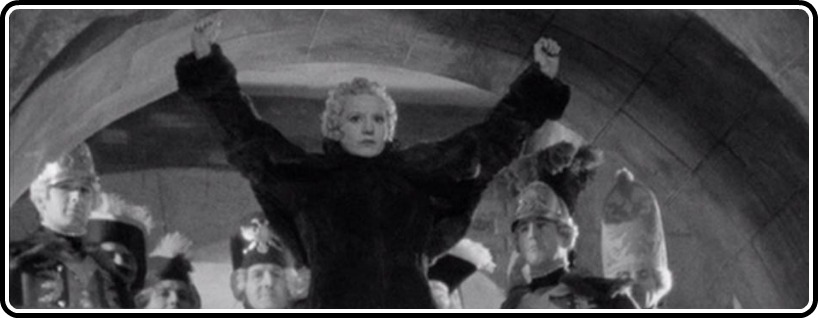



2 comments